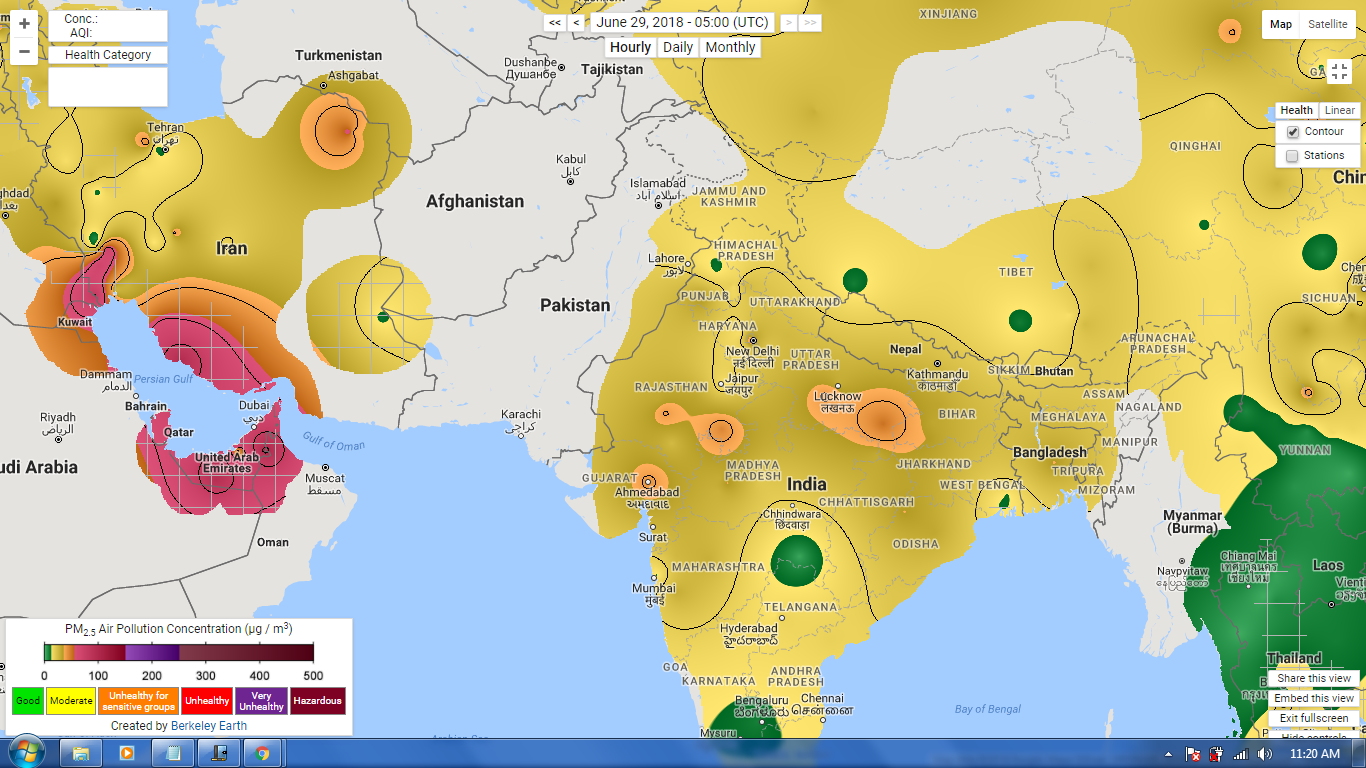“Oops! I am not smoker but I am smoking cigarette in public.
“Oops! I am not smoker but I am smoking cigarette in public.
A deeper understanding of how the loss of our already not-so-clean air will impact on our health is, just like cigarette smoking, a matter of life and death. Many research work is going on, on intersection of climatic change, air pollution and human health. it is now well understood that short term and long term exposure to airborne particles, including smoke and dust pose major health risks.
In human its impact may start from minor irritation in throat to severe cough, respiratory disorder, reduced line of sight, hypertension, different types of allergies and other cardiovascular problems resulted in hospital admission and even in children is to premature death. Every year, more than 12 million people die from the hidden risks in our environment, carried by the air we breathe, the water we drink, or unseen chemicals to which we are too often exposed.
Usually normal people on average cannot recognize how bad environmental conditions are bad or worse in which they are living, so to provide awareness to that level, a non commercial scientists team from berkeley Earth, invented a paper and real time app that found how surrounded air create bad impact like cigarette, on health of living being. Currently our air is basically contaminated by dust and smoke that is because of dry land.
Today, drylands compose 41 percent of the world’s total land area and are home to around 2.1 billion people. With passage of time composition of this dryland is under drastic change by different anthropogenic activities, result in production of more dry land area which is basic source for production of dust and dust borne diseases. Dust composed of many fine soil particle, human and different animal's dead skin and hair, plant’s pollen, paper fabric, textile fiber, burn garbage particles, coal, volcanic particle, metereolites and much many other sources.
Scientifically “dust” refers to soil-derived airborne particles generated by wind erosion or human activities, such as farming operations or travel on unpaved roads. Any soil particles smaller than 0.05 millimeters – roughly the width of a human hair – can be uplifted into the air. Dust particles smaller than 0.0025 millimeters (2.5 microns), which are collectively known as “fine” particulate matter (PM). Particles this small stay in the air longer and cause the greatest harm to human health, since they can penetrate deep into the lungs.
Scientists team from berkeley Earth invented an app to check air quality. It is real time app that collect air data. The data, which shows the number of cigarettes you would have to smoke to equal the danger of the polluted air you breathe,the obtained data further analyzed by two app developers to create a service called, “Shoot is Smoke!” that allows you a real-time look at just how bad the air pollution around you really is. On a recent day, Beijing residents smoked the equivalent of 7.3 cigarettes. In New York City the residents smoked 1.1, in Chicago it was 2.5, and in Los Angeles the number was 4—just by walking outside and breathing the air.
In Pakistan mainly not much work have been done because of lack of cooperation and facilities.
Air quality in Pakistan is cross the safe border limit and is a mother cause of 59,241 deaths annually. The World Health Organization (WHO) reports that major cities in Pakistan are as polluted as the world’s most-polluted cities. The air in Pakistan has an annual average of 60 micrograms per cubic meter of air (μg/m³) of PM2.5 particles. That is four-times the safe levels recommended by the National Environmental Quality Standards for Ambient Air by the Environmental Protection Agency in Pakistan (PK-EPA).
In lahore sources of smoke and dust pollution are deforestation, industrial emission, biomass burning (crops burning, waste burning, trans road boundary waste burning) , diesel emission ( vehicle traffic, generators for electricity production), coal combustion (domestic, brick kilns and power plant).
Scientists team from berkeley Earth are hoping to find a partner that would be interested in trading advertising on the app for setting up monitoring stations in areas that are lacking data. but as few is done in main punjab and few areas adjacent to border with India shows Pakistan also including in that type of polluted area which is not suitable for sensitive people.
How to Stay Safe From Smoke in Pakistan
- Keep the doors & windows closed.
- Avoid going out.
- Stay home, inside office or within the walls as much as possible.
- Cover your face with mask.
- Use goggles & sunglasses.
- Drink as much water as you can.
- Use wet mops while cleaning your houses & offices.
- Eat clean & hygienic food. Try to avoid eating out.
- Don’t drink cold drinks & even cold plain water.
- Try to avoid the construction sites & keep such places wet so that there’s as low dust as possible.
- Get your cars & bikes checked so that there’s as low smoke as possible.



Comments
Post a Comment